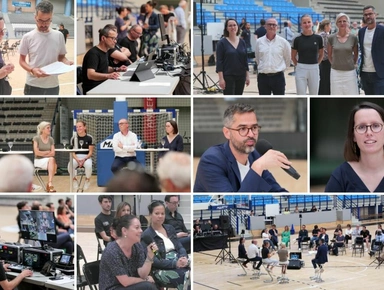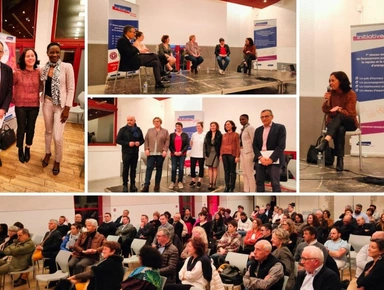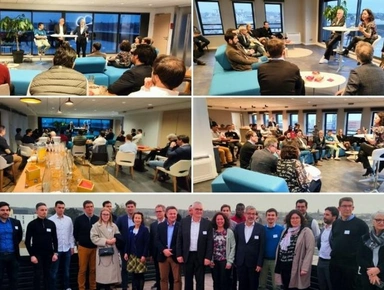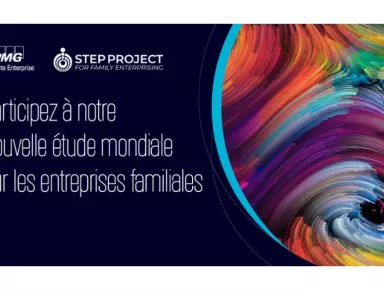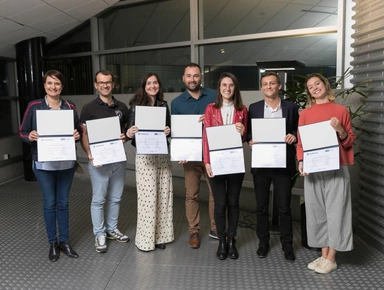Can you introduce yourself in a few words?
My name is Anaïs Angelucci, I am a PhD student and research & teaching assistant at the Catholic University of Louvain in Belgium more precisely at LouRIM (Louvain Research Institute in Management and Organizations). I teach in finance and audit but I am doing my thesis in the field of entrepreneurship.
What is your thesis topic?
The subject of my thesis is entrepreneurial cognition. I will focus on the cognitive mechanisms underlying the decision-making of entrepreneurs in different contexts: the social enterprise, the family business and the entrepreneur.
Why did you choose this topic?
What fascinates me in entrepreneurial cognition are all the disciplines that fit together, from theories in psychology to those of entrepreneurship through sociology, economics, management, finance etc ... We are always taught to think rationally, but in reality it is different. We cannot think and act systematically like robots! Our emotions, our affects, our history, the education of our parents, the culture of our country... all this is taken into account in our decision. And it's all the more important to understand them because entrepreneurs don't always have a safety net. It is therefore necessary to help them better understand their decision-making to avoid cognitive errors that can lead them to entrepreneurial failure.
And what surprised you the most about your research?
I am particularly interested in regulatory focus theory (TFR - Regulatory Focus Theory [RFT]; Higgins, 1997, 1998) which provides a better understanding of the mental processes involved by entrepreneurs when they define their goals and select the means they consider most appropriate to achieve them (Brockner, Higgins and Low, 2004).
There is both the promotional regulatory focus or "promotional focus" and the prevention regulatory focus or "preventive focus".
The first principle is based on the need for development, the need for accomplishment and the search for continuous advancement. When individuals are regulated by a promotional focus, they strive to achieve their ideals, wishes, and aspirations. They are generally concerned about the presence or absence of positive results or events (gain/no gain) and promote risky strategies to achieve this.
The second principle is based on the need for security and the focus on safety and responsibility. When individuals are regulated by preventive focus, they mainly strive to fulfill or respect their obligations, duties and responsibilities. They are generally concerned about the presence or absence of negative outcomes or events (loss/non-loss) and usually implement vigilant strategies to deal with them.
And what surprised me in my research is that the literature in entrepreneurship is mainly mobilized around the Focus promotional regulator to the detriment sometimes of the preventive approach. While it is also an entrepreneur but having other techniques that promote more security for example.
Why did you choose to work with Miruna?
Miruna works on the same areas of research in entrepreneurship and she also has a PhD in social psychology. So I wanted to write with her a research paper on entrepreneurial cognition and more specifically on the escalation bias of entrepreneurs, and we thought we could apply it also in the context of family businesses.
Can you tell us a little more about the concept of "entrepreneur escalation bias"?
The escalation bias of engagement is persistence in a course of action considered unsuccessful. These are the behaviors that persist in failure or that aggravate it because entrepreneurs will invest more time, money when they have received signals that indicate that the project is failing.
By mobilizing the theory of regulatory focus The question is whether an entrepreneur guided by a promotional or preventive regulatory focus, can he be more prone to escalation bias? Which of the two profiles would lead more to the escalation process and why? What are the reasons for this? It is all this that I want to study knowing that naturally individuals have the two regulatory focus that are more or less activated depending on the context and the education received in early childhood.
How did your thesis idea come about?
For a long time, I was interested in the theory of the "Prospect Theory". The theory of perspectives tells us that, in a state of gain, we will not necessarily take risks but as soon as we go in a state of loss, we will take risks. We are better able to take risks in a state of war, for example. Yes, it's counterintuitive.
My thesis tutor told me that the theory of regulatory focus made it possible to bring a complement and nuances to the theory of perspectives. Indeed, the theory of regulatory focus predicts that in a state of gain, promotional individuals are more inclined to take risks. However, in states of loss, preventative individuals are more inclined to take risks with the primary goal of restoring the status quo.
On the other hand, I am very interested in the notion of "failure" because failure is not considered in the same way according to the culture. For example, in the United States, there is a strong culture of failure through which mistakes are valued because they are considered a source of learning. Therefore, we can associate this culture with a promotional focus because we prefer to make a mistake rather than avoid making it. Conversely, in Europe, failure has a rather negative connotation. Therefore, we will minimize the risks and be vigilant which echoes the preventive focus.
In my opinion, because of the challenges highlighted by the United Nations, it is therefore important to invite people to dare. I would rather say: "We must dare but in a dosed way".



